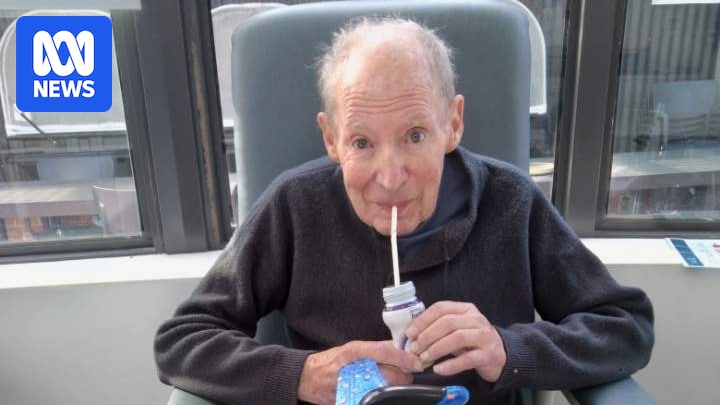Almost 2,500 elderly patients across the country are currently stuck in public hospitals, waiting for a federal government aged care bed, according to new figures compiled by the states and territories, which suggest the practice is costing taxpayers $1 billion a year.
A report prepared by the South Australian government will be presented to a meeting of health ministers in Perth today, with the states and territories calling on the federal government to do more to address what they say is a critical aged care crisis affecting hospitals around the nation.
“The current state of older Australians awaiting [residential aged care home] placement in the health system is unsustainable and threatens the ongoing viability of public hospitals to provide acute care for those in need,” the report states.
In a highly coordinated and unusual move, several state and territory ministers released statements raising concerns about the issue, hours before they were due to meet with their federal counterpart, Mark Butler.
South Australian Health Minister Chris Picton says the issue is costing taxpayers nearly a billion dollars a year. (ABC News: Lincoln Rothall)
South Australian health minister and chair of the health ministers’ meeting, Chris Picton, said almost 2,500 older Australians were ready for discharge but stuck in hospital for “no medical reason.”
“It’s not fair for them or the health system and it’s costing taxpayers nearly a billion dollars a year,”
he said.
“It’s the equivalent of three Westmead Hospitals taken out of the health system across the country by the aged care bed block failure.
“These people are effectively homeless, living in a hospital bed. Many of these patients are stuck like this for months, some even years. It’s a national tragedy.”
Mr Picton says some are waiting in hospital “effectively homeless” for years.
(ABC News: Luke Bowden)
NSW Health Minister Ryan Park said the practice was “not sustainable” and “not the way our health system has been designed.”
“The notion of thousands of aged care and NDIS patients waiting in hospital longer than they need to be is not good for the hospital system, but most importantly, it’s very bad for these patients,” he said.
WA Health Minister Meredith Hammat said while she acknowledged the work the Commonwealth had done in the space, “there is more to do.”
Extra aged care packages ‘a good start’
ACT Health Minister Rachel Stephen-Smith said the number of older people in hospital waiting for placement in residential aged care homes was impeding the ongoing viability of public hospitals to provide acute care to those in need.
“We urge the Australian government to take immediate action to resolve this aged care bottleneck and restore capacity to our hospitals,” she said.
The report said the lack of residential aged care home beds and the inability to manage older people with complex needs meant public hospitals had become “aged care providers of last resort.”
“Public hospitals are not a suitable environment for older people once no longer requiring hospital care, noting the increased risk of hospital-acquired complications and confusion for people with cognitive impairment, and the additional workforce requirements,” the report states.
The federal government has been under pressure over its handling of the aged care sector. Earlier this month, it announced it would immediately fund 20,000 more packages to support older Australians living at home, on the back of calls from advocates and across parliament.
Elderly man with dementia in hospital since December
For nine months, Mary Barker’s husband has been in a hospital in Adelaide, waiting for an aged care placement in a home with a memory support unit.
Nick, 81, has dementia and has been moved across multiple hospitals since December last year.
“It’s difficult to see him in that scenario, that is more clinical than it would be otherwise,” Mrs Barker said.
“And having to share a room with somebody rather than having his own room, which could be set up to have a certain amount of hominess for him, because it is, after all, a hospital ward.”
Mary and Nick Barker 25 years ago. (Supplied)
His long stay in hospital has meant Mrs Barker had to sell their family house in Goolwa on South Australia’s Fleurieu Peninsula and move to Adelaide, as she had been doing 150km round trips three times a week to see Mr Barker.
Mrs Barker said she wanted Mr Barker to be moved to an aged care home where they could both enjoy being in the garden outside together.
“He’s always been somebody who has spent a lot of time, certainly a lot of recreational time outside,” she said
“With his personality, it helps calm him.”
Mrs Barker said she was hoping he could find a spot in an aged care home soon, but was trying not to get her hopes up.
“I just take things day by day … it can be too exhausting if you’re hoping for something that may or may not eventuate,”
she said.
“So it would be really good if … there could be something done. It’s not a minor thing, it’s huge.”
Mrs Barker hopes her husband can move to an aged care home where they can enjoy being in the garden together. (Supplied)
A federal government spokesperson said a 2023 national cabinet meeting included approving a $1.2 billion Strengthening Medicare Package, funded by the Albanese government and determined in collaboration with the states and territories.
“The package included over $598 million in direct funding to state-led initiatives to provide improved supports to older Australians who are at risk of or are currently experiencing delayed discharge from hospital,” the spokesperson said.
“This funding has been delivered and now it is up to the states to roll out these services to their communities to keep older Australians out of hospital.
“States need to commit to addressing the growing pressures in their public hospital systems.”
